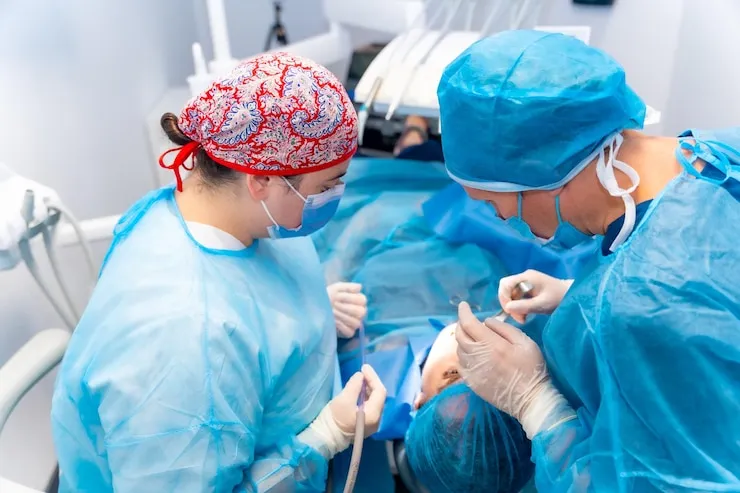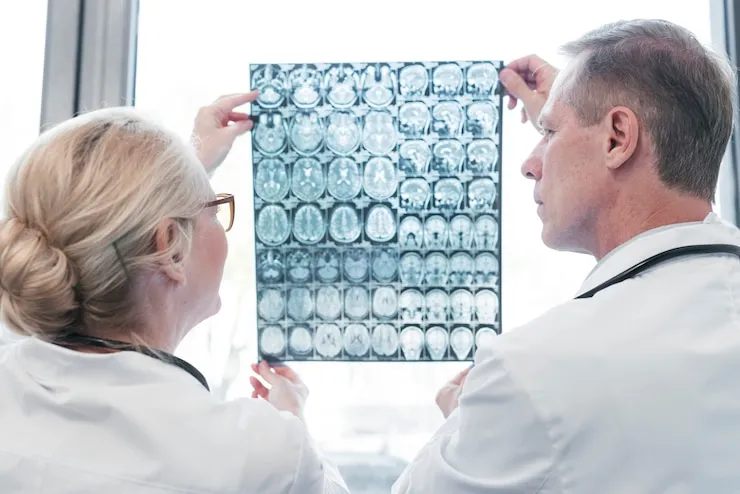Aaron Jackson
Beyond the Scalpel: Controlling Tremors with Deep Brain Stimulation (DBS)
Reclaim control from tremors with advanced brain surgery
Tremors, involuntary shaking of the hands, head, or voice, can be a debilitating symptom of various neurological conditions. While medications can offer some relief, they can have side effects and may not be effective for everyone. In the past, traditional brain surgery was considered the primary option for severe tremors. However, Deep Brain Stimulation (DBS) has emerged as a revolutionary and minimally invasive approach for controlling tremors and improving quality of life for many patients. This article delves into the world of DBS, exploring its advantages over traditional brain surgery, its effectiveness in managing tremors, and the potential it holds for improving patient outcomes.

Traditional Brain Surgery vs. Deep Brain Stimulation: Understanding the Options
Traditional Brain Surgery for Tremors:
Traditional brain surgery for tremors, also known as thalamotomy, involves making an incision in the skull and physically destroying a specific region of the brain's thalamus responsible for tremor control. While effective in some cases, this approach carries risks of permanent neurological damage and requires extensive recovery time.
Deep Brain Stimulation: A Minimally Invasive Approach:
DBS, on the other hand, offers a safe and effective alternative. Here's a breakdown of the DBS procedure:
- Implantation: Under local anesthesia, a neurosurgeon creates small openings in the skull and precisely implants thin electrodes deep within the brain, targeting specific areas responsible for tremors.
- Lead Placement: Extension wires connect the electrodes to a pacemaker-like device, typically implanted under the collarbone.
- Stimulation and Programming: The implanted device delivers electrical pulses to the targeted brain regions, modulating neural activity and reducing tremor severity. The settings of the stimulator can be adjusted by a neurologist to optimize tremor control.
The Power of Precision: Deep Brain Stimulation for Tremor Control
Benefits of Deep Brain Stimulation for Tremors:
Compared to traditional brain surgery, DBS offers several advantages for tremor management:
- Minimally Invasive: The procedure is less invasive than traditional brain surgery, leading to shorter recovery times and fewer risks of complications.
- Reversible: DBS is reversible. If necessary, the stimulation can be adjusted or even turned off altogether.
- Precise Targeting: DBS targets specific areas of the brain more precisely, minimizing the risk of damaging healthy tissue.
- Adjustable: The intensity and frequency of stimulation can be adjusted to individual needs, allowing for personalized tremor control.
Clinical Applications of DBS:
DBS has been proven effective in treating various tremor conditions, including:
- Parkinson's disease tremor: DBS significantly reduces tremors associated with Parkinson's disease, improving hand function and daily activities.
- Essential tremor: This neurological disorder causes uncontrollable shaking, and DBS is a successful treatment option for managing it.
- Dystonic tremor: DBS can help manage dystonic tremor, characterized by involuntary muscle contractions and abnormal postures.
Patient Experience with DBS:
Many patients with tremors experience significant improvement in their quality of life after DBS surgery. Tremor severity is reduced, allowing them to regain control over daily activities like eating, dressing, and writing.
Living a Life Less Limited: The Future of Deep Brain Stimulation for Tremors
Ongoing Research and Advancements:
Research on DBS continues to evolve, exploring its applications in treating other neurological conditions and refining surgical techniques. Additionally, advancements in technology are leading to the development of more sophisticated DBS devices with improved battery life and programming capabilities.

A Brighter Future for Patients:
DBS offers immense promise for improving the lives of individuals struggling with tremors. With its minimally invasive nature, precise targeting, and proven effectiveness, DBS is revolutionizing the way we manage tremors and paving the way for a future filled with improved quality of life for patients.
When to Consider DBS:
If you experience significant tremors that are not adequately controlled by medications and are impacting your daily life, discussing DBS with your doctor might be beneficial. A neurologist can assess your individual situation and determine if DBS is a suitable treatment option for you.

 Telehealth Visits Available
Telehealth Visits Available
